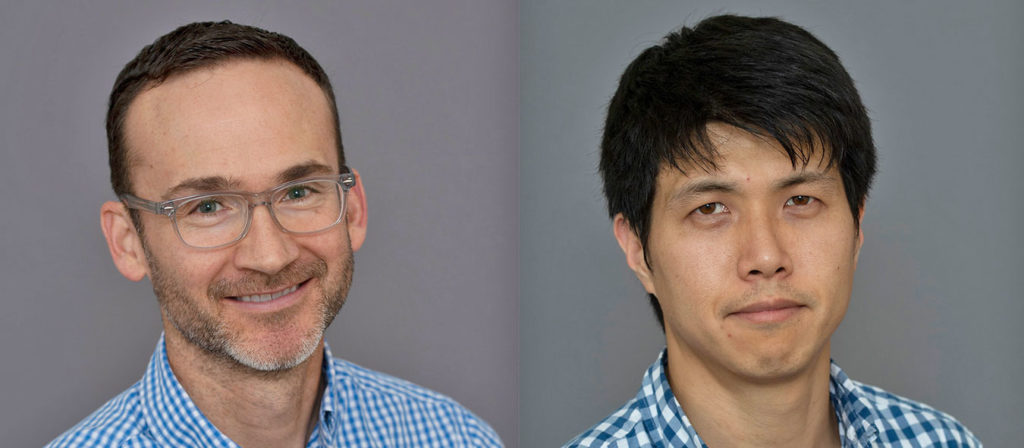Professor Dr. Isaac Wait and Assistant Professor Dr. Sungmin Youn gave presentations last month at the West Virginia Chamber 2019 Environmental and Energy Conference in Charleston. Both teach civil and environmental engineering in Marshall University’s College of Information Technology and Engineering and shared information about recent research projects.
Youn’s presentation highlighted his efforts to develop a low-cost approach to the removal of Disinfection By-Products (DBPs) from drinking water, through filtration utilizing recycled and processed coffee grounds. Given that many communities in West Virginia are threatened by periodic outbreaks of Harmful Algal Blooms, such as the 2015 bloom on the Ohio River that contributed to a spike of DBP concentrations in finished drinking water, the development of new, less-costly ways to remove Natural Organic Matter (NOM) precursors may be an important tool to improve drinking water quality and protect human health.
Wait’s presentation described a recent project to characterize rainfall interception by mixed deciduous woods, and the resulting effect on the timing and quantity of stormwater runoff during flash floods. Seasonal variation of the density of tree cover causes an observable change in the effect of rainfall interception by trees, but these variable effects are not routinely accounted for when hydrologists and engineers develop runoff hydrographs. By isolating the specific contribution of vegetative interception to lag time, Wait hopes to enable for enhanced accuracy of stormwater flow estimates, and improved design of the culverts, channels, and bridges that exist to accommodate those flows.
The conference is West Virginia’s premier conference where experts share the latest federal and state environmental and energy regulations and research.
“I am very proud of the quality of work that has been produced by Dr. Isaac Wait and Dr. Sungmin Youn,” said Dr. Wael Zatar, dean of the College of Information Technology and Information (CITE). “CITE is very fortunate to have professors with their background and knowledge. Their research work on civil and environmental engineering is essential to elevate the excellence of our students. I am very impressed with how passionate they are.
“The students benefit from the faculty as they share their research knowledge. I believe that Marshall is leading the way in the state and region for research that is geared towards better understanding in the areas of civil and environmental engineering.”
Wait and Youn are among many faculty members in CITE who participate in finding the solutions to many challenges in the areas of engineering, computer science, and applied science and technology, Zatar said.
Originally from Jean Hardiman for Marshall University Communications.
